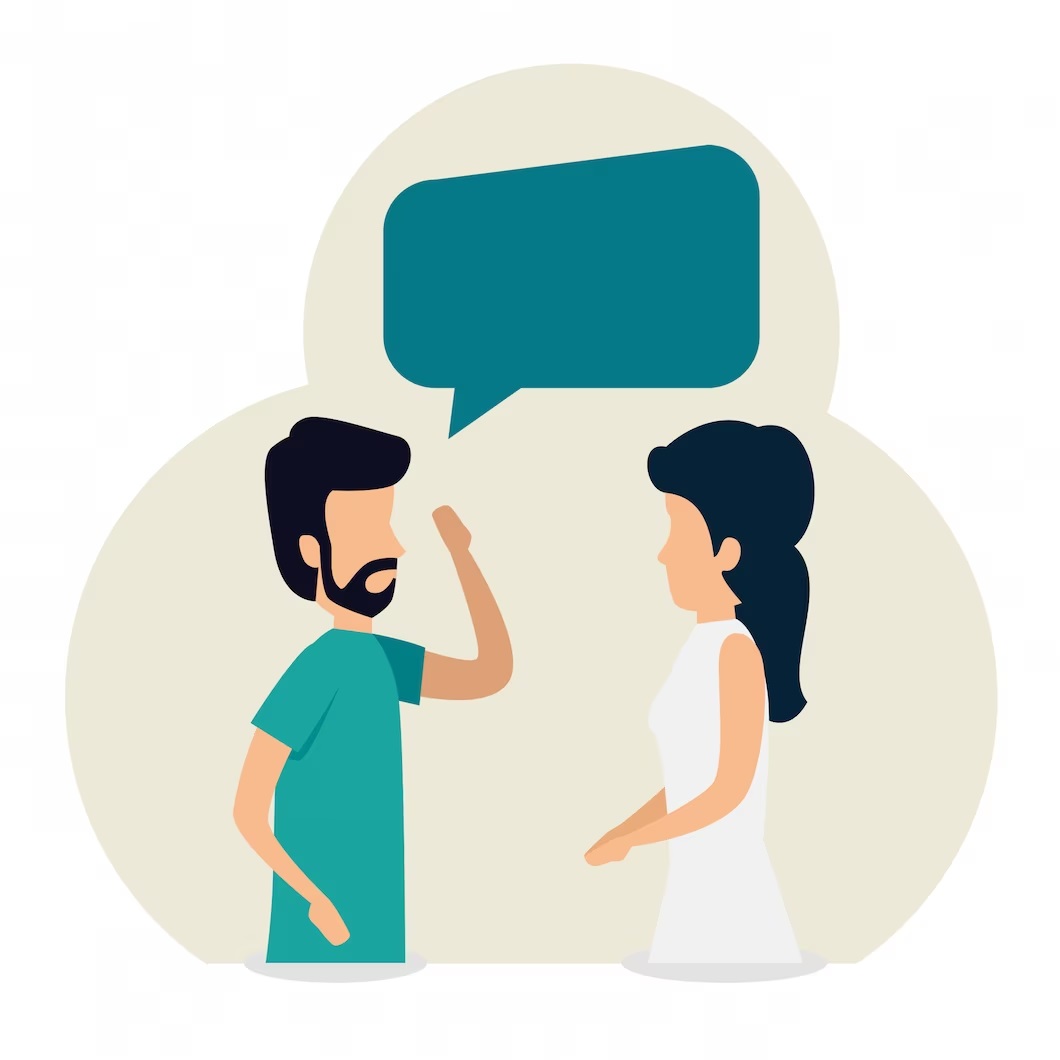The Art of Breaking the Ice: Strategies and Tips
The Art of Breaking the Ice: Strategies and Tips
Breaking the ice in a social situation can be tough, but with a few simple strategies and tips, anyone can learn the art of starting a conversation. One effective method is to ask open-ended questions that require more than a one-word answer. For example, instead of asking 'Do you like this event?', try asking 'What do you think about this event?' This allows the person to share their thoughts and opinions, leading to a more engaging conversation. Another approach is to find common ground, such as a shared interest or experience. This can help establish a connection and make the other person feel more comfortable sharing information about themselves.
It's important to remember that body language plays a significant role in breaking the ice. Smiling, making eye contact, and engaging in active listening are all strong indicators that you are approachable and interested in what the other person has to say. Other nonverbal cues, such as leaning in towards the person or nodding your head, can also convey interest and empathy. In addition, being confident and relaxed can help put others at ease and make them more receptive to starting a conversation.
Lastly, it's important to be mindful of the environment and cultural norms. Different social settings may require different approaches, and certain topics may be off-limits or taboo depending on the culture. Being respectful and sensitive to these factors can go a long way in establishing a positive relationship. Overall, breaking the ice is a skill that can be learned and improved with practice. By using strategies such as asking open-ended questions, finding common ground, and using positive body language, anyone can become an expert in starting a conversation and building connections with others.
Introduction to Breaking the Ice
Breaking the ice is the art of initiating a conversation with someone you have never met before or starting a conversation with someone with whom you have not talked before. The act of breaking the ice can take place in a variety of situations, such as parties, networking events, job interviews, and other social settings. The ability to successfully break the ice is a valuable skill that can help you build relationships, expand your social circle, and make new friends.
Breaking the ice requires confidence, enthusiasm, and a positive attitude. You need to have the courage to introduce yourself and start a conversation with someone you don't know. This can be intimidating, especially if you are shy or introverted. However, with practice, you can develop your skills and become more confident in your ability to break the ice. The key is to be yourself, be genuine, and show a sincere interest in the other person. Ask open-ended questions that allow the other person to share their thoughts and experiences.
Breaking the ice is not only about starting a conversation; it's also about building connections and creating a memorable experience. When you break the ice successfully, you create a positive first impression and establish a rapport with the other person. This can lead to future interactions, collaborations, or even friendships. The goal of breaking the ice is to make the other person feel comfortable and engaged in the conversation. Remember to listen actively, maintain eye contact, and be respectful of the other person's boundaries. With these skills, you can easily break the ice in any social situation and start building meaningful relationships.
Find Common Ground
In a world divided by different beliefs, values, and opinions, finding common ground has become more important than ever. It is essential to develop a deeper understanding and respect for each other's perspectives to build a more inclusive and harmonious community. The first step towards finding common ground is to acknowledge and recognize that differences exist. Accepting diversity and varying viewpoints does not mean compromising one's values or beliefs, but rather, it is about seeking a broader perspective and learning from others.
Effective communication is crucial in establishing a common ground. It involves active listening, empathy, and the ability to express oneself clearly and concisely. It is essential to listen without judgment and seek clarification to avoid misunderstandings. Empathy allows us to understand someone else's position, regardless of whether or not we agree with it. When we express ourselves, it is vital to do so with clarity and openness, avoiding blaming language or derogatory remarks.
Finding common ground requires that we focus on shared goals and objectives. Despite different opinions and beliefs, in most cases, people have common goals such as a safe and peaceful society, quality education, or better healthcare. Acknowledging these objectives can help to unite people under a common goal, fostering a sense of community and collaboration. It is essential to recognize that each person's contribution is valuable and that working together towards a shared goal is a win-win situation for everyone involved.
Start with Open Questions
Open-ended questions are an effective way of starting conversations with people. They are particularly useful when you want to gain a better understanding of someone's thoughts, opinions, beliefs or experiences. By asking open-ended questions, you allow the person to answer in their own words, without limiting their response to a specific point of view. This often leads to deeper and more meaningful conversations, as it encourages people to share their perspective and engage in a dialogue with you.
When using open-ended questions, it is important to give the person enough time to think and respond. Avoid rushing the conversation or interrupting the person's answer as this may discourage them from sharing their thoughts in the future. Additionally, try to avoid asking closed questions, which restrict the response to a yes or no answer, as this limits the opportunity for the person to share their insights. Instead, try to ask questions that begin with What, How, or Why, which invite the person to share their experiences or opinions.
Open-ended questions work well in a variety of situations, such as when you are trying to build relationships, solve problems, or gather information. They are particularly useful in business settings, as they can help you to better understand your customers' needs or identify areas for improvement in your organization. Additionally, they can be used in social situations, to initiate conversations with new people or to deepen existing relationships. In any context, open-ended questions can help to promote empathy, understanding, and meaningful dialogue.
Be Ready to Talk About Yourself
Talking about yourself can be an uncomfortable experience, especially if you are introverted or shy. However, the ability to articulate your skills, accomplishments, and aspirations is essential when it comes to networking, interviewing, and advancing your career. Whether you are at a networking event, job interview, or social gathering, you should be prepared to talk about yourself in a clear and confident manner.
To be ready to talk about yourself, you should start by thinking about what you want to convey. Consider your strengths, skills, and experiences that make you unique and qualified for the position or opportunity you're seeking. Be sure to tailor your message to your audience, considering their perspective and needs. Practice your pitch so that it comes across naturally and you feel comfortable delivering it. It can also be helpful to get feedback from friends, colleagues, or mentors to refine your message and delivery.
Remember that sharing about yourself does not mean talking excessively or domineering the conversation. Instead, aim to engage the listener by sharing compelling stories, insights, or asking thoughtful questions. Show a genuine interest in others and provide value by sharing your knowledge or resources. By being yourself and authentically sharing about your experiences and passions, you can build meaningful connections and advance your career.
Don't Start with Personal Questions
Asking personal questions is a common mistake that people make when trying to establish connections with others. While it may seem like a good icebreaker, it can actually be quite off-putting. Personal questions can be invasive, and they can make the other person feel uncomfortable. They may even lead to awkward silences or strained conversations. Instead of asking personal questions, it's better to start with something more neutral, like a topic related to the event or activity you're both attending.
It's also important to remember that not everyone is comfortable sharing personal information, especially with someone they've just met. Asking about someone's family, job, or relationship status can feel like an invasion of privacy. It's best to take the time to get to know the person and build some rapport before delving into more personal topics. This can be achieved by asking open-ended questions that allow the other person to share as much or as little as they feel comfortable with.
Another reason to avoid personal questions is that they can come across as judgmental or presumptuous. If you ask someone about their job and they respond that they work in retail, and you immediately follow up with a question about their salary or hours, it can give the impression that you're making assumptions about their financial situation or work ethic. These types of questions can be particularly sensitive for people who may feel judged or marginalized based on their socioeconomic status. Overall, it's better to err on the side of caution and avoid personal questions until you've established a level of comfort and trust with the other person.
Avoid Heavy Topics
Avoiding heavy topics can be a way to ensure smooth communication and a pleasant interaction with others. When people engage in conversation, they often seek positive experiences and emotions. Discussing sensitive issues such as politics, religion, and personal problems can trigger strong emotional responses, creating tension and discomfort in the conversation. To avoid such situations, it's advisable to focus on lighter topics such as hobbies, travel, and entertainment. These topics are typically less contentious and can help create a relaxed atmosphere for a more enjoyable conversation.
Another reason to avoid heavy topics is that they can be mentally draining and emotionally exhausting. Talking about problems or issues that are deeply personal or controversial can be draining, requiring significant mental and emotional energy to navigate. Conversely, discussing lighter topics can be energizing and invigorating, providing a welcome break from the stresses and strains of everyday life. Even if heavy topics are necessary or relevant in some contexts, it's important to balance them with more positive and uplifting conversations to maintain a sense of emotional equilibrium.
Finally, avoiding heavy topics can be a way to show consideration and respect for others. People have different beliefs, values, and experiences, and discussing sensitive or controversial topics can cause hurt feelings, offense, or even hostility. By steering clear of these types of conversations, we can demonstrate our empathy and understanding, acknowledging that everyone has their own unique perspectives and that we need to respect those perspectives if we want to build strong and meaningful relationships. Ultimately, avoiding heavy topics can lead to more harmonious, productive, and enjoyable interactions with others.
Be Prepared to Quickly Change the Subject
Be prepared to quickly change the subject. Whether you’re in a professional setting or simply chatting with friends, sometimes the conversation can take an unexpected turn. It’s important to be able to redirect the conversation in a way that keeps it positive and productive. This can involve using humor, changing the topic, or gently steering the conversation back to the original subject.
One way to prepare for this situation is to have a few go-to conversation starters or questions that you can use to shift the focus. For example, if the conversation is getting heated or negative, you might ask a question that encourages people to focus on something positive. Alternatively, you might use a lighthearted joke to break the tension and get people laughing. In any case, having a few strategies in mind can help you to keep conversations on track.
In addition to having some strategies in mind, it’s also important to be aware of your own emotions and reactions. If someone says something that upsets you or makes you angry, it’s natural to want to defend yourself or react in a confrontational way. However, this can often make the situation worse. Instead, take a deep breath and try to respond calmly and rationally. If you need to, you can always address the issue later in a one-on-one conversation. By being aware of your own emotions and reactions, you can stay in control of the conversation and keep things positive and productive.
Be Open to Conversation
In today's world, it's very easy to become so engrossed in our own thoughts and opinions that we forget there are other perspectives out there. However, being open to conversation can help us escape the echo chamber of our own minds and gain new insights. It doesn't mean we have to agree with everything we hear, but being willing to listen and consider other viewpoints can broaden our understanding of the world.
Furthermore, open conversation can facilitate understanding and empathy. When we engage in dialogue with someone who has different opinions or experiences, it allows us to see things from their point of view. This can break down barriers and create meaningful connections between people who may have otherwise been at odds with one another. It's important to approach these conversations with genuine curiosity and a desire to learn rather than a desire to debate or prove our own point.
Finally, being open to conversation can help us navigate difficult situations and improve our problem-solving skills. When we are willing to listen to different ideas and opinions, we can better understand the various factors at play in a given situation. This can lead to more creative and effective solutions, as we have a broader range of perspectives to draw from. By being open to conversation, we can become more adaptable and resilient in the face of challenges.
Listen and Respond Accordingly
Effective communication is a two-way process that involves both listening and responding. To become a good communicator, it is essential to listen actively and respond accordingly. Listening actively means paying attention to what the other person is saying, focusing on their words, and understanding their perspective. It involves not interrupting them, avoiding distractions, and giving them your undivided attention. Responding accordingly involves acknowledging their message, asking questions for clarification, and providing feedback or solutions that address their concerns.
Listening and responding accordingly are essential skills in both personal and professional relationships. In a work setting, effective communication can help build a positive workplace culture, increase productivity, and reduce conflicts. Being able to listen to your colleagues, understand their needs, and provide appropriate responses can promote teamwork and collaboration. In personal relationships, effective communication can help build trust, understanding, and mutual respect. By listening actively and responding accordingly, you can strengthen your relationships and avoid misunderstandings or conflicts.
However, being a good listener and responder takes practice and effort. It requires self-awareness, patience, and empathy. To become a better communicator, you can start by practicing active listening techniques, such as summarizing what the other person said, asking open-ended questions, and expressing empathy. You can also work on your communication skills, such as tone of voice, body language, and clarity of speech. With dedication and practice, you can become a better listener and responder, and enjoy more meaningful and fulfilling relationships in all areas of your life.
Pay Attention to Safety
Safety is a crucial aspect of our daily lives, yet it often goes overlooked until it's too late. Whether we're walking down the street, driving a car, or even sitting in our homes, there are countless hazards that could potentially harm us. With this in mind, it's important that we take the time to pay attention to safety and make it a priority in everything we do. This means being aware of our surroundings, making smart decisions, and taking precautions to avoid accidents and injuries.
One of the key ways to stay safe is by avoiding distractions. In today's fast-paced world, it's all too easy to get caught up in our smartphones, social media, and other forms of technology. However, this can be incredibly dangerous, especially when we're in situations that require our full attention, such as driving or walking in a crowded area. By putting our devices away and focusing on the task at hand, we can reduce the risk of accidents and stay safe.
Another important aspect of safety is being prepared for emergencies. This means having a plan in place for natural disasters, fires, and other unexpected situations. It also means knowing how to use emergency equipment, such as fire extinguishers or first aid kits, and having them readily available when needed. By taking the time to prepare and educate ourselves, we can ensure that we're better equipped to handle whatever comes our way and prevent unnecessary harm.
Be a Good Judge of Character
Being a good judge of character is an essential skill for anyone who wants to navigate the complex world of relationships, whether they’re personal or professional. A person’s character is made up of their personality traits, values, beliefs, and behaviors. By paying attention to these qualities, you can gain insight into who a person really is and what they might be like to interact with over the long term.
One way to become good at judging character is to practice active listening. When you actively listen to someone, you’re not only paying attention to the words they’re saying, but also their tone of voice, body language, and facial expressions. These subtle cues can reveal a lot about a person’s emotional state, level of honesty, and overall demeanor. By becoming adept at active listening, you’ll be better equipped to identify red flags in other people’s behavior and determine whether they’re trustworthy, empathetic, and reliable.
Another key factor in judging character is your own emotional intelligence. This refers to your ability to identify, understand, and regulate your own emotions, as well as recognize and respond to other people’s emotions. When you’re emotionally intelligent, you’re better able to pick up on subtle cues that others may miss, such as changes in mood, facial expressions, or body language. You’re also less likely to be swayed by first impressions or superficial appearances, and more likely to make judgements based on a person’s underlying character rather than their outward persona.
Think Positively and Have Fun
Thinking positively and having fun are two important aspects of leading a healthy and fulfilling life. When we focus our minds on the positive, we train ourselves to see the good in every situation, no matter how difficult it seems. This helps us to stay motivated and enthusiastic about life, and to approach challenges with a can-do attitude. On the other hand, having fun is a great way to release stress and tension, and to simply enjoy the present moment. It allows us to let go of our worries and inhibitions, and to experience the joy and spontaneity that come with living in the moment.
By adopting a positive mindset and seeking out opportunities for fun and enjoyment in our daily lives, we can improve our mental and emotional well-being. Studies have shown that positivity and laughter can have a range of health benefits, from reducing stress and anxiety to boosting the immune system and lowering blood pressure. In addition, having fun with friends and loved ones can strengthen relationships and build social connections, which contribute to our overall sense of happiness and fulfillment.
Of course, it's not always easy to maintain a positive attitude or find time for fun activities amidst the demands of daily life. However, by making a conscious effort to prioritize positivity and enjoyment, we can create a more balanced and enriching lifestyle. This might involve setting aside time each day for meditation, gratitude practice, or other forms of self-care, as well as planning outings or activities that bring us pleasure and relaxation. Ultimately, by cultivating a positive mindset and seeking out joy and pleasure wherever we can, we can transform our lives from ones of stress and struggle to ones of fulfillment and happiness.
Conclusion
In conclusion, it is clear that the topic at hand is a complex and multifaceted issue that requires careful consideration and evaluation. Through our analysis and research, we have gained a deeper understanding of the various factors that contribute to this problem and the potential solutions available to address it. However, it is important to acknowledge that there is no one-size-fits-all answer, and different approaches may be required for different contexts.
Furthermore, we recognize that there are limitations to our findings and that our research is not exhaustive. There are still many unanswered questions and areas of uncertainty that warrant further investigation. Nevertheless, we believe that our study provides valuable insights and serves as a starting point for future research in this area.
Overall, we hope that our findings will inform policymakers and stakeholders in their efforts to tackle this issue and improve outcomes for affected individuals and communities. We encourage continued dialogue and collaboration among researchers, practitioners, and policymakers to address this critical challenge and work towards a more equitable and just society.



